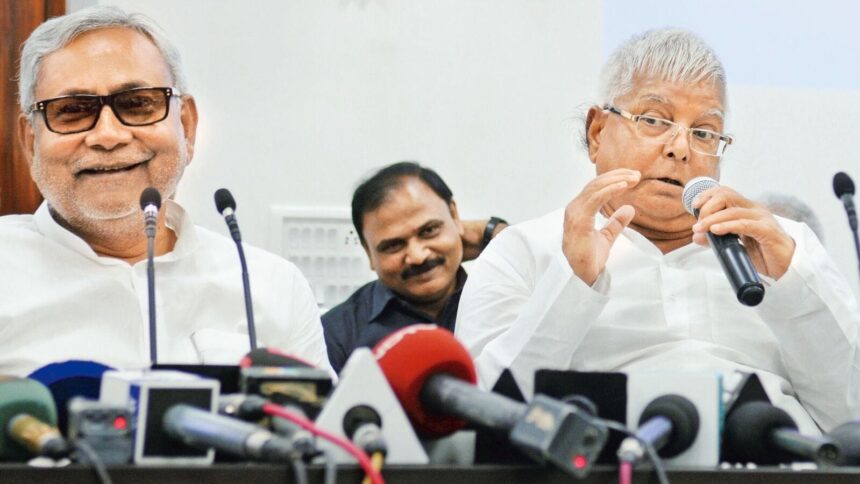The Controversy Surrounding the Heckling of a Folk Singer in Patna: An Analysis
In a shocking incident that took place in Patna, Bihar, a folk singer found herself at the center of a political storm when she was allegedly heckled during a performance. This event, held to commemorate the birth anniversary of a notable figure, quickly spiraled into a highly charged political controversy, raising questions about cultural expression, religious sentiment, and political agendas.
The Incident Unfolded
The singer was performing the bhajan "Raghupati Raghav Raja Ram," which is historically significant and closely associated with Mahatma Gandhi’s ideals of religious unity. However, the crowd reportedly erupted when she reached the line “Ishwar Allah Tero Naam,” prompting accusations that the Bharatiya Janata Party (BJP) members present incited the uproar. Video footage of the incident showed the singer apologizing to the agitated audience, highlighting the intensity of the situation.
Rashtriya Janata Dal (RJD) leader Lalu Prasad Yadav condemned the actions of the BJP members, alleging that they not only heckled the singer but also coerced her into apologizing publicly. He expressed concerns about the disrespect shown towards women and cultural figures, particularly with the invocation of Hindu and Muslim deities in traditional songs.
Political Reactions and Accusations
The incident quickly escalated into a full-blown political argument. The Congress party weighed in, asserting that the uproar revealed a deep-seated hatred held by those affiliated with the Rashtriya Swayamsevak Sangh (RSS) and the BJP towards the principles of Gandhi. They framed the BJP’s actions as reflective of a broader ideology that undermines the ethos of unity and respect historically championed by Gandhi.
While the BJP acknowledged the furore, they clarified that their objections were rooted specifically in the inclusion of the line "Ishwar Allah Tero Naam," which they claimed was not part of the original bhajan composed by the 15th-century saint Narsi Mehta but an addition made to serve a political narrative of Hindu-Muslim unity promoted by Gandhi. This claim has injected the discussion with elements of historical revisionism, igniting further debate about the integrity of cultural expressions and the political appropriation of religious sentiments.
Cultural and Historical Context
The bhajan itself carries a rich legacy, having been part of the Indian cultural landscape for centuries. The controversial line included at Gandhi’s behest symbolizes an attempt to bridge divides between communities. By adapting traditional prayers to reflect mutual respect, Gandhi sought to foster a spirit of solidarity between Hindus and Muslims, especially during tumultuous times in Indian history.
Critics argue that the recent political climate, marked by rising religious nationalism, now seeks to re-interpret such historical efforts at unity. By attacking a cultural expression directly tied to Gandhian philosophy, the actions of the BJP at this event may be seen as an affront not only to artists but also to the foundational ideals of India as a secular democracy.
Conclusion: A Reflection on Unity and Cultural Expression
The incident in Patna serves as a poignant reminder of the fragility of cultural expression within India’s current political landscape. It raises essential questions about how art, especially in the form of traditional music and hymns, can be instrumentalized or heckled in a politically charged environment. As various political factions seek to define and redefine what it means to be Indian, the voices of artists and the messages embedded in their work must be protected from the tumult of partisan politics.
This event is a call to reassess the role of culture in a democracy—does it serve as a bridge or a battleground? In times of strife, the challenge remains to uphold the spirit of unity that Gandhi advocated, ensuring that narratives of mutual respect and understanding prevail over divisive rhetoric. As the discourse continues, it is crucial not just to reflect on this incident but also to reaffirm our commitment to a pluralistic society where all voices, regardless of their political undercurrents, can coexist and thrive.










